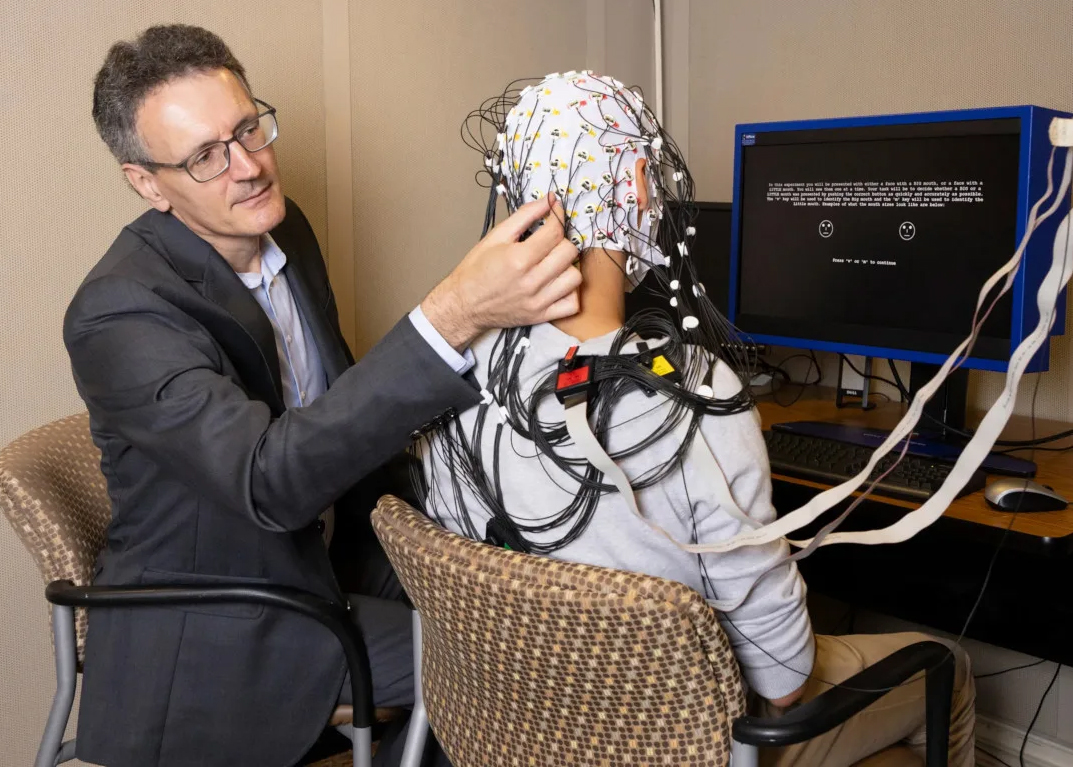Feeling ‘meh’ about daily life might signal higher than normal stress
Anhedonia can be present without depression, researcher says

Diego Pizzagalli, PhD, is the founding director of the Noel Drury, MD Institute for Translational Depression Discoveries at UC Irvine.
IN THE NEWS: Finding little joy in dinner with friends or on a leisurely walk is known as anhedonia, a Greek word that is defined as “without pleasure.” Occasional “meh” feelings are considered a part of the human experience, but longer spells could indicate prolonged stress or mental health challenges.
Diego Pizzagalli, PhD, a Distinguished Professor in the Department of Psychiatry & Human Behavior at the UC Irvine School of Medicine, recently spoke with BBC Science Focus about the expanded definition of anhedonia, which now includes a lack of motivation to seek pleasure.
“It’s basically that the effort, literally the cognitive or physical effort, is just too large. And so, [a person] will not initiate [the activity].”
This might be due to a reduction in dopamine, which has been observed in those diagnosed with anhedonia. Dopamine dysfunction can be caused by depression, schizophrenia, substance abuse and, commonly, chronic stress.
“But when the stressor becomes uncontrollable, chronic and sustained, then you get a profound downregulation of dopamine. That actually has been linked very clearly to anhedonic phenotypes [patterns of behavior].”
Pizzagalli conducted a study in 2022 of young adults who had experienced maltreatment as young children. Although not diagnosed with depression, their brains’ reward systems were less active when they imagined a potential reward – a warning sign for anhedonia.
 Pizzagalli also spoke with WebMD about why anhedonia needs to be taken seriously by clinicians.
Pizzagalli also spoke with WebMD about why anhedonia needs to be taken seriously by clinicians.
"People need to take anhedonia very seriously because it persists. It can have very negative consequences, including an increased risk of suicide.”
His team is currently studying brain biomarkers that may help predict which medications will work best for each person which, one day, could lead to more personalized treatments. Though there is no medication that treats anhedonia specifically, Pizzagalli encourages sufferers to keep pursuing help even if past treatments haven’t worked.
"It's important for individuals not to lose hope, even if in the moment it seems a burden. You don’t have to suffer alone – reach out for help.”
Pizzagalli is the founding director of the Noel Drury, MD Institute for Translational Depression Discoveries at UC Irvine. His primary research goals are to improve the understanding of the psychological, environmental and neurobiological factors associated with mood disorders, especially major depression.
Pizzagalli is also a Distinguished Professor of Neurobiology and Behavior in the School of Biological Sciences and a professor of biomedical engineering in the Henry Samueli School of Engineering.
About UCI Health
UCI Health, one of California’s largest academic health systems, is the clinical enterprise of the University of California, Irvine. The 1,461-bed system comprises its main campus UCI Health — Orange, its flagship hospital, the UCI Health — Irvine acute care hospital and medical campus, four hospitals and affiliated physicians of the UCI Health Community Network in Orange and Los Angeles counties and a network of ambulatory care centers across the region. UCI Health — Orange provides tertiary and quaternary care and is home to the only Orange County-based National Cancer Institute-designated comprehensive cancer center, high-risk perinatal/neonatal program and American College of Surgeons-verified Level I adult and Level II pediatric trauma center, gold level 1 geriatric emergency department and regional burn center. Powered by UC Irvine, UCI Health serves 5.6 million people in Orange County, western Riverside County and southeast Los Angeles County. Follow us on Facebook, Instagram, LinkedIn and X (formerly Twitter).





